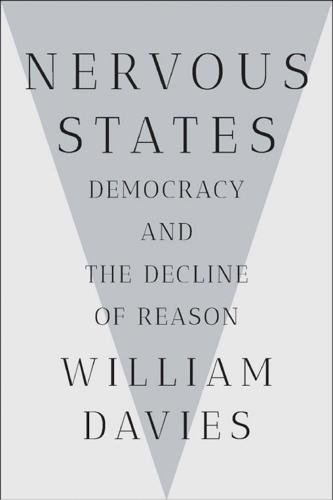
Nervous States: Democracy and the Decline of Reason
by
William Davies
Published 26 Feb 2019
Napoleon was as much a politician as he was a general, but a politician whose ambition was to build an empire. He didn’t fight only for the glory of it, but to achieve clearly defined objectives, and continued to fight until he’d achieved them. Reflecting on this led Clausewitz to make the observation for which he is best known: “war is the continuation of politics by other means.” The book in which that quote appears was written as a series of unpublished essays between 1816 and his death from cholera in 1831, later assembled by his wife to be published as On War. A number of his more sympathetic readers have noticed the influence of Kant over his work, especially in the method with which On War weaves together abstract principles with practical realities.
…
His definition of war—“an act of violence intended to compel our opponent to fulfil our will”—was brutal in its simplicity and he believed that (in contrast to the smaller wars that came before) modern warfare was only really finished when one side had been utterly disempowered.4 In other respects, Clausewitz can be read like a management consultant, helping decisionmakers to dispassionately weigh the costs and benefits of different courses of action. In the aftermath of the Vietnam War, his work became required reading in US military colleges, as the Pentagon sought to rethink its core principles of defense and attack. To say that “war is the continuation of politics by other means” is to say that fighting is just one of various means of achieving some objective, to be used as and when it is rational to do so. General Gerasimov was arguing precisely this, leading observers to describe his doctrine as “Clausewitzian.” This idea reduces war to something administrative, turning violence into one of many instruments at the state’s disposal, to get stuff done.
…
Civil society and democracy are also framed as “wars,” with the “culture wars” splitting American politics down the middle since the 1960s, and Alex Jones, the notorious far-right talk-show host and conspiracy theorist, warning that “there’s a war on for your mind.” The alt-right accuses left-wingers of being “SJWs” (social justice warriors). In the early twenty-first century, it’s not so much that “war is a continuation of politics by other means” but that “politics is a continuation of war by other means,” although precisely where “peaceful” means end and “violent” ones begin is less and less clear. Of course most of these “wars” are not really wars at all, but only framed as such so as to mobilize supporters and frighten opponents.
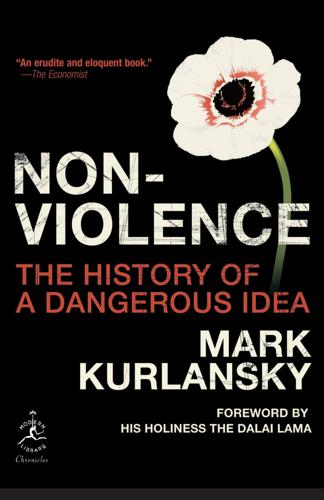
Nonviolence: The History of a Dangerous Idea
by
Mark Kurlansky
Published 7 Apr 2008
Leading scientists, writers, political activists, and the general population around the world agreed on their opposition to nuclear weapons. The so-called “father of the Soviet hydrogen bomb,” So-viet physicist Andrei Sakharov, and Albert Einstein, the Western “nuclear father,” were in agreement. Sakharov took on Clausewitz's famous dictum that war was “a continuation of politics by other means,” saying, “A thermonuclear war cannot be considered a continuation of politics by other means. It would be a means of universal suicide.” While governments were playing out their Cold War, young people in both blocs were having their ideas shaped as they were being taught to crouch under their school desks, which someone somewhere had decided would be the one safe place for them in the event of a nuclear World War III.
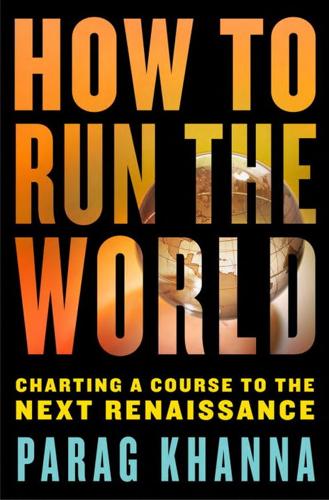
How to Run the World: Charting a Course to the Next Renaissance
by
Parag Khanna
Published 11 Jan 2011
British historian Arnold Toynbee marveled that the West’s mastery of war, technology, and diplomacy had “unified the whole world in the literal sense of the whole habitable and traversable surface of the globe.”1 From Vienna in 1814 to Paris in 1919, diplomacy took on the aura of a clique of white men carving up the world—a secretive parlor game played by arrogant statesman with heavy accents. Since that time, diplomats have been charged with negotiating how to run the world. Diplomacy remains an element of everything we do. Carl von Clausewitz declared that war is the continuation of politics by other means. Diplomacy, by contrast, is supposed to play the role of “words that prevent us from reaching for our swords,” according to Bosnian scholar and diplomat Drazen Pehar. Yet war and diplomacy have often been two sides of the same coin, from the time of the Babylonians through Napoléon and Stalin.
…
Each intervention is cobbled together with piecemeal funding and supplies (from the first world) and troops (from the third world) without sufficient training or a clear mandate for today’s more dangerous stabilization missions. Once on the ground, UN operations have fallen into every postconflict trap, from failing to confront local warlords to following mandates that don’t match local realities to designing constitutions without popular buy-in. Peacekeeping has become the continuation of politics by other means: Some operations have gone on for so many years that they may have become part of the problem themselves. For peacekeeping to not further degenerate into never-ending, halfhearted occupations, the more than $8 billion spent on it each year would be better allocated to building local, multinational forces managed by regional organizations.
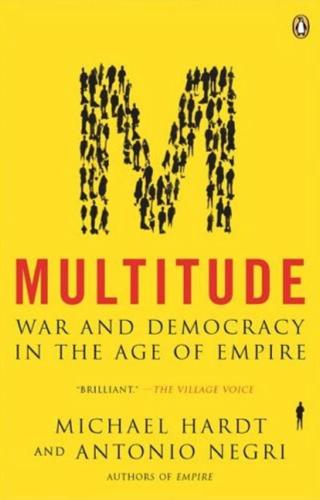
Multitude: War and Democracy in the Age of Empire
by
Michael Hardt
and
Antonio Negri
Published 1 Jan 2004
Conflicts within the nation were to be resolved peacefully through political interaction. The separation of war from politics was a fundamental goal of modern political thought and practice, even for the so-called realist theorists who focus on the central importance of war in international affairs. Carl von Clausewitz’s famous claim that war is the continuation of politics by other means, for example, might suggest that politics and war are inseparable, but really, in the context of Clausewitz’s work, this notion is based, first of all, on the idea that war and politics are in principle separate and different. 6 He wants to understand how these separate spheres can at times come into relation.
…
The tradition of tragic drama, from Aeschylus to Shakespeare, has continually emphasized the interminable and proliferating nature of war.15 Today, however, war tends to extend even farther, becoming a permanent social relation. Some contemporary authors try to express this novelty by reversing the Clausewitz formula that we cited earlier: it may be that war is a continuation of politics by other means, but politics itself is increasingly becoming war conducted by other means.16 War, that is to say, is becoming the primary organizing principle of society, and politics merely one of its means or guises. What appears as civil peace, then, really only puts an end to one form of war and opens the way for another.
…
In order for war to occupy this fundamental social and political role, war must be able to accomplish a constituent or regulative function: war must become both a procedural activity and an ordering, regulative activity that creates and maintains social hierarchies, a form of biopower aimed at the promotion and regulation of social life. To define war by biopower and security changes war’s entire legal framework. In the modern world the old Clausewitz adage that war is a continuation of politics by other means represented a moment of enlightenment insofar as it conceived war as a form of political action and/or sanction and thus implied an international legal framework of modern warfare. It implied both a jus ad bellum (a right to conduct war) and a jus in bello (a legal framework to govern war conduct).
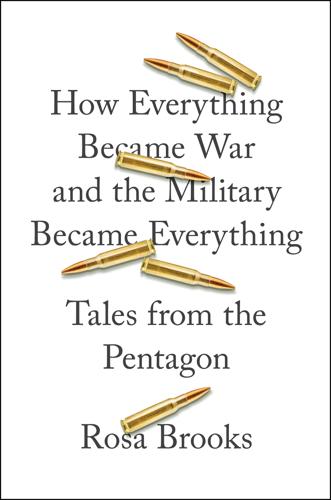
How Everything Became War and the Military Became Everything: Tales From the Pentagon
by
Rosa Brooks
Published 8 Aug 2016
There’s no real war, so to speak, until the fighters intend to go to war and until they do so with a heavy quantum of force.5 This is in line with the views of the great German military strategist Carl von Clausewitz, who saw war as “nothing but a duel on an extensive scale . . . an act of violence intended to compel our opponent to fulfill our will.” To this, he famously added, “ ‘War is nothing more than the continuation of politics by other means. . . . For political aims are the end and war is the means, and the means can never be conceived without the end.” War, to Clausewitz, “is only a branch of political activity . . . it is in no sense autonomous.”6 But the element of violence remains critical: as historian Michael Howard notes, political or economic conflicts such as “trade wars and tariff wars may involve conflicting interests, but unless there is an element of organized, sanctioned and purposeful violence, these are not war.”7 Most of us intuitively follow these definitions when we try to understand war.
…
Charter had experienced the “untold sorrows” of war firsthand, as had the leaders and populations of the states that employed them. Historically, war had been viewed as a prerogative of states: an acceptable mode of territorial expansion, revenue production, or political dispute resolution. Clausewitz saw war as the continuation of politics by other means, and just war theory was simply that: theory. But the U.N. Charter sought to cement into law the Kellogg-Briand Pact’s earlier prohibition on waging aggressive war—this time, with considerably more success. Under the charter, U.N. member states pledged “to establish conditions under which justice and respect for the obligations arising from treaties and other sources of international law can be maintained, and . . . to practice tolerance and live together in peace with one another as good neighbors, and to unite our strength to maintain international peace and security, and to ensure, by the acceptance of principles and the institution of methods, that armed force shall not be used, save in the common interest.”
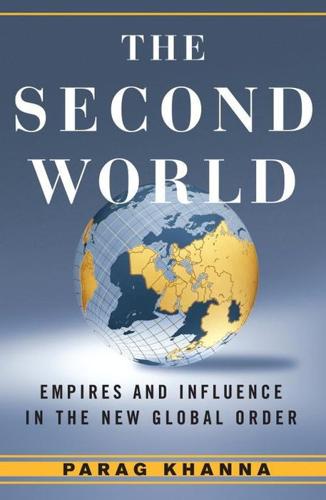
Second World: Empires and Influence in the New Global Order
by
Parag Khanna
Published 4 Mar 2008
Academics and former government officials have come up with no shortage of acronyms to embody their grand visions for managing global order—but reality always seems to have a different opinion.79 The evolution of international laws and codes without war would undoubtedly serve the great powers most, but as the playwright Bertolt Brecht aphorized, “War is like love; it always finds a way.”80 Mankind will only progress systemically as far as it has progressed psychologically. Diplomacy is “the management of international relations by negotiation,” wrote Sir Harold Nicolson.81 War, in this sense, is not the continuation of politics by other means, but rather the cessation of negotiation.*68 A century ago, globalization was defeated by geopolitics, unleashing World War I. The question is whether history will repeat itself a century later. The answer remains unknown, for as the second world shapes both geopolitics and globalization, diplomacy becomes ever more an art.
…
See Brzezinski, The Grand Chessboard; Graham Allison, Karl Kaiser, and Sergei Karaganov, “The World Needs a Global Alliance for Security,” International Herald Tribune, November 21, 2001; and Etzioni, From Empire to Community. 80. Freud argued that “so long as there are nations and empires…all alike must be equipped for war.” In his masterful rebuttal of Karl von Clausewitz’s famous dictum that “war is the continuation of politics by other means,” historian John Keegan argues that war is natural and cultural—nature, not nurture—preceding even the creation of polities, states, and armies. From cannibalism to conflicts among nations, strife is part of the human condition. Keegan, A History of Warfare (New York: Vintage, 1993). 81.

Paper Machines: About Cards & Catalogs, 1548-1929
by
Markus Krajewski
and
Peter Krapp
Published 18 Aug 2011
One must have learned and viewed plenty of things before one can act independently following the preliminary work of Library Bureau.15 A dark threat. What does “plenty of things” possibly refer to? Does an enterprise need to fail twice—as in Dewey’s case—before it opens new markets or manages to consolidate its accounting? Or is it necessary to take Clausewitz’s line that “war is merely a continuation of politics by other means” seriously? Is 1912 possibly an anticipation of an impending wartime economy? If the management of soldiers and the management of books in Vienna around 1800 converge, index cards a century later are substitutes mediating between reader and book. Made precisely and according to standards, they in fact become ammunition in the shape of precise media of transmission, that is, projectiles.16 As a former librarian of the Essen Library as well as the Krupp corporate libraries (and at times a welcome guest at the Krupp residence), Paul Ladewig is aware of the distributive power of his library policy book, which went into three printings, undertaking as normalization nothing other than the recommendation of “impartially working” Library Bureau products.17 The unequivocal program of the industry-friendly librarian barely comes as a surprise: “the strict application of indexing practices in specialized publications, [. . .] an international format of index cards, a coherent collection of office forms, the construction of storage towers for libraries, [. . .] taking precautions against the effects of bombing in the likely event of war” are among his innovations in the field of German librarianship.18 Punch Cards The Viennese card index thus manages to assert itself as the permanent basis for book search, and this expansion of interfaces requires a gradual yet inevitable extension in everyday interaction with these delicate devices.
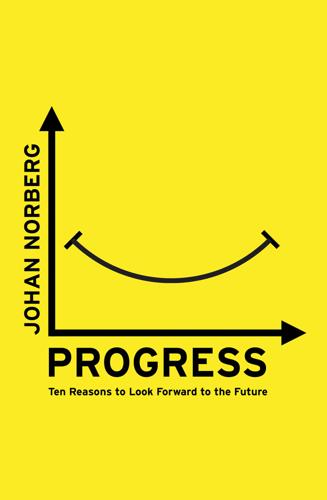
Progress: Ten Reasons to Look Forward to the Future
by
Johan Norberg
Published 31 Aug 2016
It does something to your attitude to war when you see a picture of a nine-year-old girl, running for her life from a napalm attack, on the cover of your morning newspaper. It makes it more difficult to talk about glory, or of how the enemy got what they deserved. The United Nations was founded in 1945, with the explicit goal of avoiding another such conflict, and it worked hard to make borders sacrosanct. The old idea that war was merely the continuation of politics by other means, just one of the tools for statecraft, was replaced by the idea that war is a crime and illegal unless in self-defence. European powers gave up the idea of territorial expansion and dismantled their empires, sometimes after revolts and conflict, sometimes peacefully, which meant the end of colonial wars and atrocities.
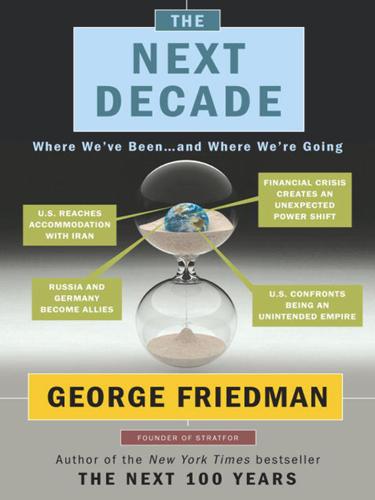
The Next Decade: Where We've Been . . . And Where We're Going
by
George Friedman
Published 25 Jan 2011
Obama may have clarified the nomenclature, but he left in place a significant portion of the imbalance, which is an obsession with the threat of terrorist attacks. As we consider presidential options in the coming decade, it appears imperative that we clear up just how much of a threat terrorism actually presents and what that threat means for U.S. policy. According to the Prussian military theorist Carl von Clausewitz, war is a continuation of politics by other means. Victory in World War II did not consist of compelling Japan to stop using aircraft carriers. Victory meant destroying Japan’s ability to wage war, then imposing American will—a political end. If a president is to lead a nation into war, he must crisply designate both the enemy and the end being sought.

White City, Black City: Architecture and War in Tel Aviv and Jaffa
by
Sharon Rotbard
Published 1 Jan 2005
In this story all places resemble each other, and so does the physical reality: the architectural, the urban, and the political intertwine and sustain one another. If we adopt Carl von Clausewitz’s formula, complete with all its geometries and possible inversions, White City is an example of how architecture, like war, is the continuation of politics by other means. In turn, we can classify a Black City as an example of how war is the continuation of architecture by other means.239 Eventually, the division into a black city and a white city is the outcome of the perspective, the terms, and the rules of the game as dictated by the White City.

Thinking Without a Banister: Essays in Understanding, 1953-1975
by
Hannah Arendt
Published 6 Mar 2018
The indication lies in the rather obvious, though frequently neglected, fact that war can no longer be justified on rational grounds or on the basis of power politics. Of course, this does not preclude the outbreak of war, but it rules out most, if not all, of its time-honored justifications. Neither the ancient wisdom of “better death than slavery” nor the nineteenth-century definition of war as the “continuation of politics by other means” can possibly apply to the kind of wholesale destruction with which we may be confronted. The former, moreover, has its origin in the situation of prisoners in ancient warfare when the victor used to carry home the defeated enemy and sell him into slavery. “Better death than slavery” was meant as an individual decision, although it could involve a whole community if all the citizens individually agreed that they preferred to risk extermination rather than be dispersed into servitude.
…
Finally, is it not obvious that it is a very different thing to risk one’s own life for the life and freedom of one’s country and one’s posterity than to risk the very existence of the human species for the same purpose? Even less applicable to our present circumstance is Clausewitz’s famous definition of war, because it proceeds from the actualities of war in the nineteenth century and hence does not take into account the possibility of complete annihilation. War is the continuation of politics by other means only in the kind of limited armed contests, conducted according to the rules of the game, that we have known during a relatively brief period of our history. Perhaps this limited warfare can still survive in conflicts between small nations, although I doubt even this. It certainly is inconceivable in a war between the big powers.
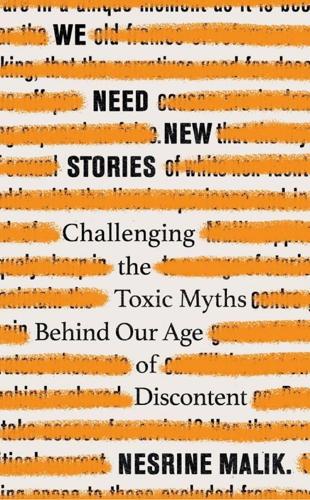
We Need New Stories: Challenging the Toxic Myths Behind Our Age of Discontent
by
Nesrine Malik
Published 4 Sep 2019
The truth is that Anglo-American history (and to a similar extent, Western European history) is founded on both the cultification of whiteness in order to instil a sense of superior national identity and the pursuit of conflict abroad which confers a sense of purpose at home. The Prussian military theorist Carl von Clausewitz coined the aphorism that war is the continuation of politics by other means. From the late 1800s, imperialist expansion into the Americas, Africa and the Indian sub-continent was war as an outsourcing of politics by other means. Take Cecil Rhodes, a man whose life is a testament to the happy marriage of expansionist white supremacy and capitalist success.
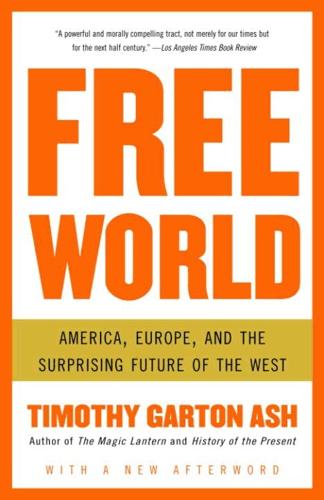
Free World: America, Europe, and the Surprising Future of the West
by
Timothy Garton Ash
Published 30 Jun 2004
To be sure, even for non-psychopaths, terrorism can, with time, become a way of life, and of supposedly honorable death. It is often deeply entangled with organized crime and profiteering. Nonetheless, for most terrorist leaders, most of the time, terror is like war in Clausewitz’s famous definition: the continuation of politics by other means. If you look more closely at the politics of early-twenty-first century terrorism, the distinction between domestic and international soon becomes blurred. Domestic in this context means inside one country. But what most terrorists in the world want is precisely that one country should become two, or that two parts of different countries should become one new country, or, in any case, that a state should be fundamentally re-made.
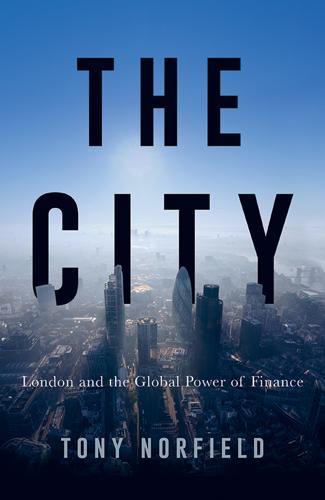
The City
by
Tony Norfield
Lord West is a forthright defender of British power – including putting himself on the front line, commanding a ship that was sunk in Britain’s war with Argentina over the Malvinas in 1982 – and he would no doubt see militarism, covert operations and the use of political ‘clout’ as important tools for sustaining it. War, as von Clausewitz famously wrote, is a continuation of politics by other means, and politics, in Lenin’s phrase, is ‘a concentrated expression of economics’. There can be little doubt that Lord West also appreciates these links, although the main theme of his outburst was Britain’s economic position. In the same vein, this book focuses on the economic foundations of Britain’s global status rather than on its military escapades.
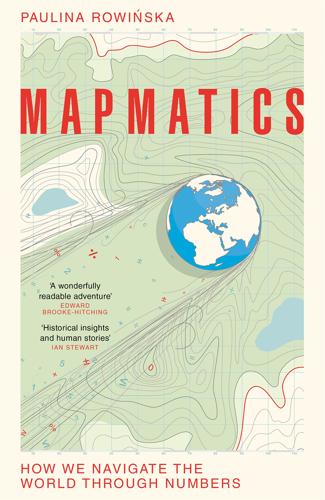
Mapmatics: How We Navigate the World Through Numbers
by
Paulina Rowinska
Published 5 Jun 2024
The US and the USSR each believed that whoever got there first would show the world which country and, by extension, which system – capitalism or communism – was worth supporting. Similarly, the battle over the shape of the Earth was as political as it was scientific. Paraphrasing a Prussian general, Carl von Clausewitz, Ferreiro argues that ‘science is the continuation of politics by other means’. He explains that ‘science by itself certainly is the search for facts, but if you step back and look at the important things – like who’s paying for it, who’s funding it, what is the intent of that support – you find very quickly that there [has] always, always been a political dimension of science.’
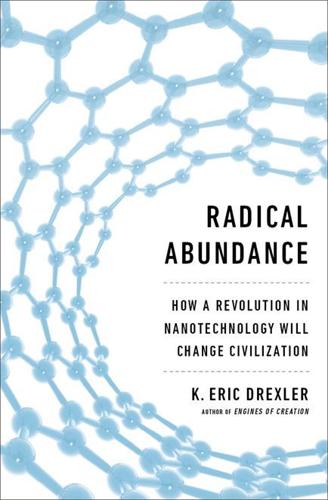
Radical Abundance: How a Revolution in Nanotechnology Will Change Civilization
by
K. Eric Drexler
Published 6 May 2013
The weapons that make news today—miniature aircraft, missiles, and guided bullets; applications of surveillance systems and drones—all point to an interest in applying lethal force from a distance, yet with the precision of sniper fire. It is important to remember, however, that coercion—not killing—is the usual purpose of war. As Sun Tzu said, “Supreme excellence consists in breaking the enemy’s resistance without fighting,” and in his best-known quotation Clausewitz described war as “merely the continuation of politics by other means.” Accordingly, the primary use of weapons is coercion—and although killing has to date been more economical, the economics of advanced technologies and low-cost production will make non-lethal weapons more competitive. Imagine a swarm of unmanned drones—built at low cost and in enormous numbers—pitted against conventional air power.
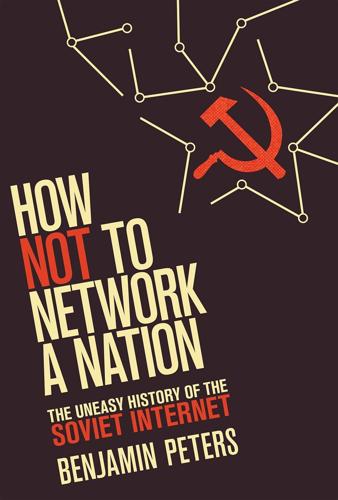
How Not to Network a Nation: The Uneasy History of the Soviet Internet (Information Policy)
by
Benjamin Peters
Published 2 Jun 2016
The Soviet state was too familiar with the unpredictable dynamism of competing informal networks (the same kinds of networks celebrated by Internet commentators in the 1990s) to be able to carry out systematic reform and infrastructure upgrade to bring the Soviet state into the current network information age. The Red King’s Book, or Botvinnik and the Soviet Case of Computer Chess If war, in Carl von Clausewitz’s famous phrase, is a continuation of politics by other means, then perhaps the most visible continuation of cold war politics by means of a game is chess (second to Go, the world’s most popular war game). This classic thinking man’s game is synecdoche for cold war confrontation, complete with two diametrically opposed rational strategists plotting the endgame of the other.36 It is no surprise that the Soviet Union, which reigned as chess hegemony for most of its existence, took its strategic chess, computer, and long-term planning thinking seriously.
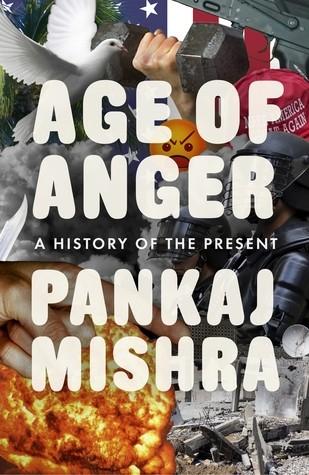
Age of Anger: A History of the Present
by
Pankaj Mishra
Published 26 Jan 2017
He also confessed to a deep unease over the fact that: I didn’t kill them in self-defense … When I took a human life, it taught me these were human beings, even though they speak a different language and have different customs. The truth is, we all have the same dreams, the same desires, the same care for our children and our family. These people were humans, like me, at the core. McVeigh’s proclamation of a common humanity now seems radical. For during the years since 9/11, war ceased to be the continuation of politics by other means; it took on a theological intensity, aiming at the extirpation of what Chris Kyle in American Sniper, a sniper’s personal account of the American war in Iraq, calls ‘savage, desperate evil’. ‘I wanted everyone to know I was a Christian,’ Kyle wrote, explaining his red Crusader-cross tattoo in his chronicle of exterminating the brutes.
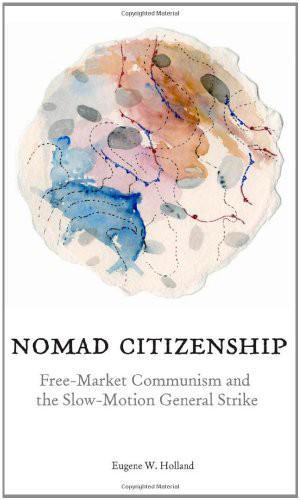
Nomad Citizenship: Free-Market Communism and the Slow-Motion General Strike
by
Eugene W. Holland
Published 1 Jan 2009
The third variant of the war-machine involves its appropriation by the State as a means to serve the State’s essentially political ends: the aim of striating, securing, and expanding territory. The State war-machine always has war as its exclusive object (it must constantly protect, if not expand, its territory), yet it remains subordinate to the State’s political aim: in this context, war is merely “the continuation of politics by other means,”100 and it is still only limited war. The fourth variant of the war-machine, which is fascism, serves for Deleuze and Guattari as a transition from the third war-machine to the fifth: fascism is what transformed limited war into total war, paving the way for the totalizing war-machine of global capitalism.
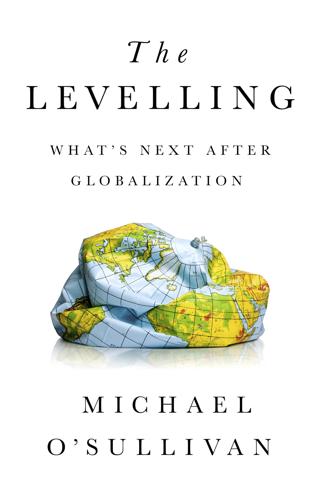
The Levelling: What’s Next After Globalization
by
Michael O’sullivan
Published 28 May 2019
One dimension that may complicate the need for less central bank intervention and diminish their independence is the quest by the large poles for financial dominance over each other. Central banks could become a vital instrument in such pursuits. Echoing Carl von Clausewitz’s view that “war is the continuation of politics by other means,” in a multipolar world central banks could become the monetary battleships of the large regions, with currency wars shadowing trade wars.16 Indeed, the epidemic of countries sanctioning each other in 2018 (Saudi Arabia sanctioning Canada and the United States sanctioning Turkey, Russia, and China, for instance) suggests that finance is a key part of the geopolitical arsenal.
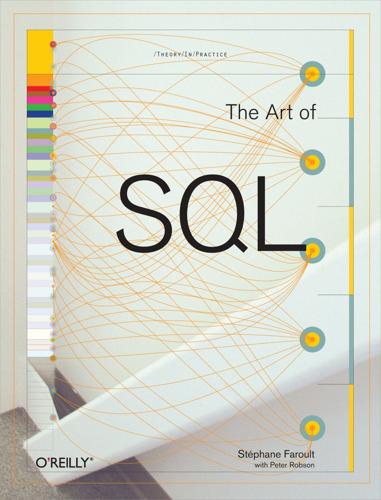
The Art of SQL
by
Stephane Faroult
and
Peter Robson
Published 2 Mar 2006
Laying Plans Designing Databases for Performance C'est le premier pas qui, dans toutes les guerres, décèle le génie. It is the first step that reveals genius in all wars. --Joseph de Maistre (1754-1821) Lettre du 27 Juillet 1812 à Monsieur le Comte de Front The great nineteenth century German strategist, Clausewitz, famously remarked that war is the continuation of politics by other means. Likewise, any computer program is, in one way or another, the continuation of the general activity within an organization, allowing it to do more, faster, better, or cheaper. The main purpose of a computer program is not simply to extract data from a database and then to process it, but to extract and process data for some particular goal.
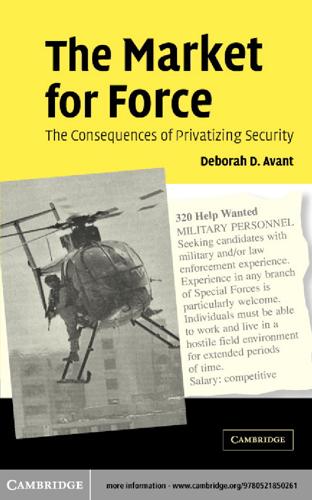
The Market for Force: The Consequences of Privatizing Security
by
Deborah D. Avant
Published 17 Oct 2010
The answer is simple, private security may affect how and whether people can control violence. The effort to contain violence within collective structures – rules, laws, norms, and institutions – has been an ongoing struggle throughout human history. “War,” John Keegan writes, “is not the continuation of politics by other means,” we only wish that were so. He argues that Clausewitz’s dictum was part of a theory of what war ought to be.6 Clausewitz’s conception reflected the emerging view in the west that the state – or the “public” sphere – was the institution through which the use of violence could be most effectively linked to endeavors endorsed by a collective.
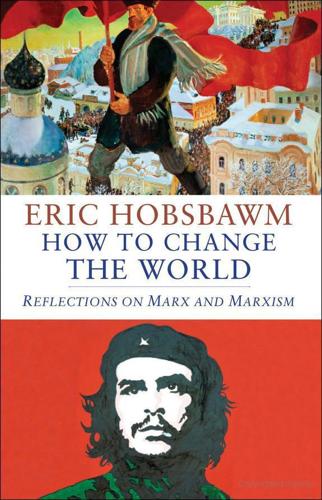
How to Change the World: Reflections on Marx and Marxism
by
Eric Hobsbawm
Published 5 Sep 2011
These changes in the perspectives of revolution determined a major change in Marx’s and Engels’ attitude to war. They were no more pacifist in principle than they were republican democrats or nationalists in principle. Nor, since they knew war 76 Marx, Engels and Politics to be Clausewitz’s ‘continuation of politics by other means’ did they believe in an exclusive economic causation of war, at least in their lifetime. There is no suggestion of this in their writings. 74 Briefly, in the first two phases, they expected war to advance their cause directly, and the hope of war played a major, sometimes a decisive part in their calculations.
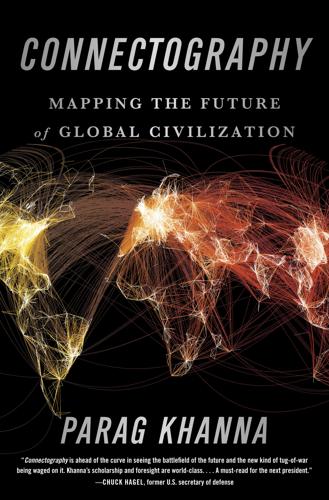
Connectography: Mapping the Future of Global Civilization
by
Parag Khanna
Published 18 Apr 2016
Even though interdependence can be weaponized through financial sanctions, cyber-attacks, and supply chain disruptions, escalation is far costlier for both sides today than a century ago because they immediately harm one’s own businesses operating in the rival country. Clausewitz’s dictum that “war is the continuation of politics by other means” must be updated: War is the continuation of tug-of-war by other means. * * * *1 The regions they are warring over, those squeezed in between these continental mega-powers, are the ones I explored in The Second World: Empires and Influence in the New Global Order. *2 There is an ongoing debate as to whether China itself might join TPP if it agrees to adhere to the standards of protecting intellectual property and ending preferential treatment for state-owned enterprises.

Active Measures: The Secret History of Disinformation and Political Warfare
by
Thomas Rid
He wrote: “Hence, the political exposures in themselves serve as a powerful instrument for disintegrating the system we oppose, the means of diverting from the enemy his casual or temporary allies, the means for spreading enmity and distrust among those who permanently share power with the autocracy.”13 Some analysts in West Germany had learned from their East German opponents that understanding active measures required understanding Lenin first. As West German counterintelligence noted in the 1985 report, Lenin reversed the famous line, by the Prussian military theorist Carl von Clausewitz, that war was a continuation of politics by other means. Politics was a continuation of war by other means, in Lenin’s reading, and active measures an “ersatz for (military) warfare.”14 By this point in the Cold War, the West Germans understood not just Lenin but also the tactics, techniques, and procedures of this form of ersatz war.
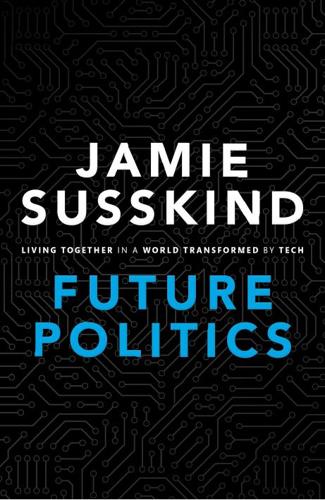
Future Politics: Living Together in a World Transformed by Tech
by
Jamie Susskind
Published 3 Sep 2018
Another grey area is whether war is part of politics as opposed to something distinct. The Prussian general Carl von Clausewitz famously believed that OUP CORRECTED PROOF – FINAL, 29/05/18, SPi РЕЛИЗ ПОДГОТОВИЛА ГРУППА "What's News" VK.COM/WSNWS 72 FUTURE POLITICS war is the ‘continuation of politics by other means’, yet scholars such as Sir Bernard Crick and Hannah Arendt argue that war represents the breakdown of politics, not politics itself.6 You may already be clutching your cranium in despair. How are we supposed to make sense of the future of politics when we can’t even agree on what politics is?
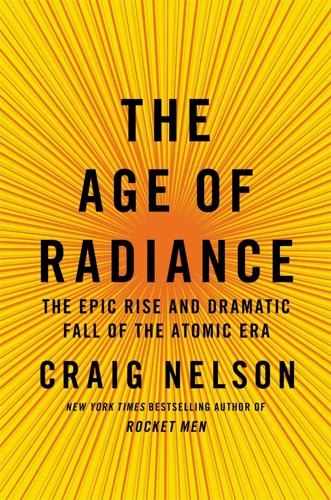
The Age of Radiance: The Epic Rise and Dramatic Fall of the Atomic Era
by
Craig Nelson
Published 25 Mar 2014
But when you take away all these layers of cloth, at the bottom of the thing, basically, is MAD, and no one likes it.” Nikita Khrushchev’s son, Sergei: “For thousands of years peoples have resolved their conflicts by armed clashes. There was good reason for Karl von Clausewitz to write that war is a continuation of politics by other means. With the invention of nuclear weapons, politicians suddenly realized that war would no longer lead to victory, that both sides would lose. But they didn’t know how to behave differently. So they behaved the same way, but without going to war. War without war was called ‘cold war.’ . . .
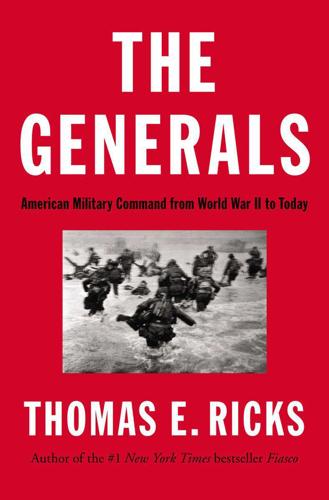
The Generals: American Military Command From World War II to Today
by
Thomas E. Ricks
Published 14 Oct 2012
Powell probably should have responded coolly that as chairman of the Joint Chiefs it was his job—his obligation—to ensure that politics were connected to military operations. After all, the best-known observation of Clausewitz, the great Prussian theorist of war, is that war is the continuation of politics by other means. A war not fought for political ends is simply mindless bloodshed. Yet Powell did not say any of that. Rather, he responded with full-throated emotion. “Don’t you pull that on me,” he shouted back at his fellow Vietnam veteran. “Don’t you try to lay a patronizing guilt trip on me!
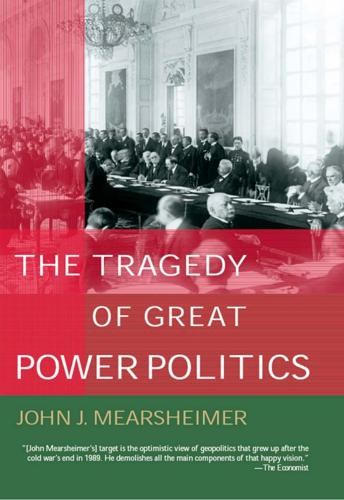
The Tragedy of Great Power Politics
by
John J. Mearsheimer
Published 1 Jan 2001
In essence, great powers are like billiard balls that vary only in size.28 Third, realists hold that calculations about power dominate states’ thinking, and that states compete for power among themselves. That competition sometimes necessitates going to war, which is considered an acceptable instrument of statecraft. To quote Carl von Clausewitz, the nineteenth-century military strategist, war is a continuation of politics by other means.29 Finally, a zero-sum quality characterizes that competition, sometimes making it intense and unforgiving. States may cooperate with each other on occasion, but at root they have conflicting interests. Although there are many realist theories dealing with different aspects of power, two of them stand above the others: human nature realism, which is laid out in Morgenthau’s Politics among Nations, and defensive realism, which is presented mainly in Waltz’s Theory of International Politics.
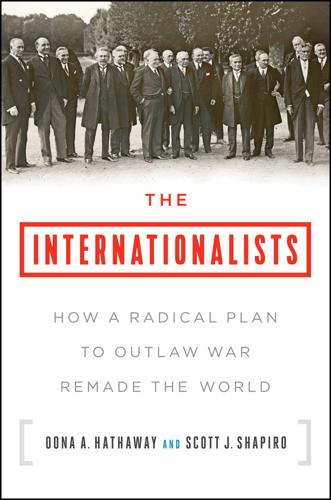
The Internationalists: How a Radical Plan to Outlaw War Remade the World
by
Oona A. Hathaway
and
Scott J. Shapiro
Published 11 Sep 2017
The rules differed starkly from the ones that govern today. The Old World Order was defined first and foremost by the belief that war is a legitimate means of righting wrongs. The inhabitants of the Old World Order would have found the famous maxim from Carl von Clausewitz’s On War to be incontrovertibly true: War is simply the continuation of politics by other means.21 Resorting to arms did not signal a failure in the system: It was how the system worked. War was an instrument of justice. Might was Right. But it is not just that the Old World Order sanctioned war: It relied on and rewarded it. All states had the right of conquest: Any state that claimed it had been wronged by another state, and whose demands for reparations were ignored, could retaliate with force and capture territory as compensation.
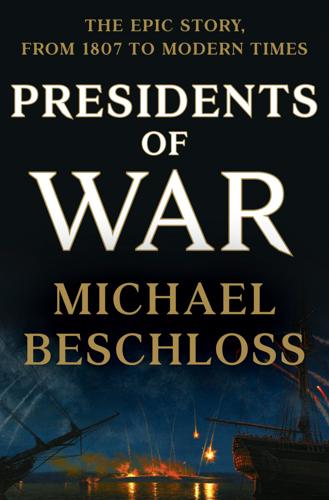
Presidents of War
by
Michael Beschloss
Published 8 Oct 2018
“Assuming the White Man’s Burden: The Seizure of the Philippines, 1898–1902.” Philippine Studies, Fourth Quarter 1995. White, Jonathan W. “The Strangely Insignificant Role of the U.S. Supreme Court in the Civil War.” Journal of the Civil War Era, June 2013. Yoo, John C. “The Continuation of Politics by Other Means: The Original Understanding of War Powers.” California Law Review, Mar. 1996. CHAPTER NOTES Presidential speeches and messages are in Public Papers of the Presidents (Washington, DC: US Government Printing Office), unless otherwise noted. Newspaper and magazine articles and oral histories are cited within each chapter’s notes.
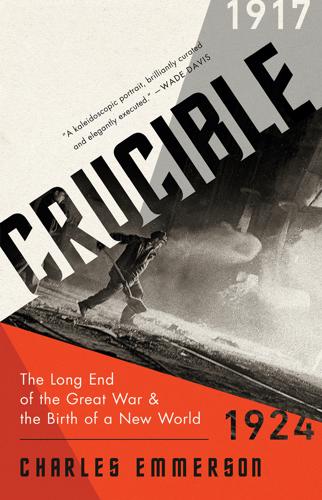
Crucible: The Long End of the Great War and the Birth of a New World, 1917-1924
by
Charles Emmerson
Published 14 Oct 2019
The Bavarian leader was literally ‘dragged down from the podium by the outraged masses, and kicked out of the room’, he writes gleefully. Hitler is briefly held in police custody for incitement. The nineteenth-century Prussian theorist of war Carl von Clausewitz once wrote that war is the continuation of politics by other means. Hitler turns this famous dictum on its head, and suggests that the party needs to apply the tactics of Flanders in 1918 to the streets of Munich in 1921. ‘Just as during the war we moved from a war of position to a war of attack, so it must be now’, says the mangy field-runner when he meets members of the euphemistically named gymnastics and sports units of the party: ‘You too will be trained as storm-troopers’, he tells them.
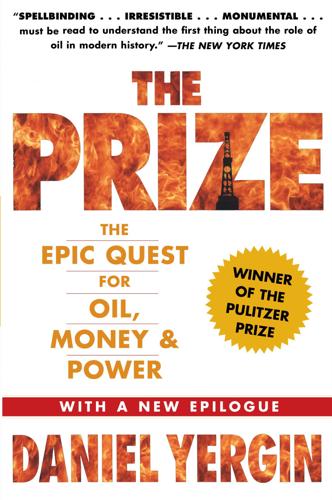
The Prize: The Epic Quest for Oil, Money & Power
by
Daniel Yergin
Published 23 Dec 2008
The shock would enable both sides, including Egypt, to show a flexibility that was impossible while Israel considered itself militarily supreme and Egypt was paralyzed by humiliation. His purpose, in short, was psychological and diplomatic, much more than military." Sadat's decision was calculated; he was operating on Clausewitz's dictum that war was the continuation of politics by other means. Yet, at the same time, he made his decision with a profound sense of fatalism; he knew he was gambling. While the possibility of a war was hinted and even talked about in a general way, it was not taken very seriously, especially by those who would be its object—the Israelis. Yet by April of 1973 Sadat had begun formulating with Syria's President Hafez al-Assad strategic plans for a joint Egyptian-Syrian attack.
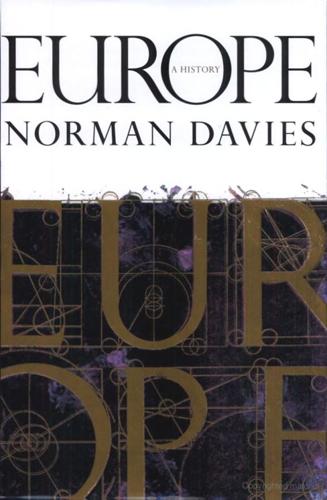
Europe: A History
by
Norman Davies
Published 1 Jan 1996
But much more common was the assumption of De Maistre that war was ‘the habitual state of the human species’. The treatise On War (1832), written by the Prussian general Karl von Clausewitz (1780–1831), was one of the most lucid and influential books of the century. ‘War’, he wrote, ‘is the continuation of politics by other means.’ Recounting the onward march of modernization, it is easy to give the impression that the road was smooth and the direction obvious. But such an impression would be false. The territory was often hostile, the obstacles enormous, the accidents unremitting. For every entrepreneur there was an aristocrat who did not want the railway to cross his land; for every machine there was a dispossessed craftsman who wanted to smash it; for every fresh factory, abandoned villages: for every shining city hall, slums.